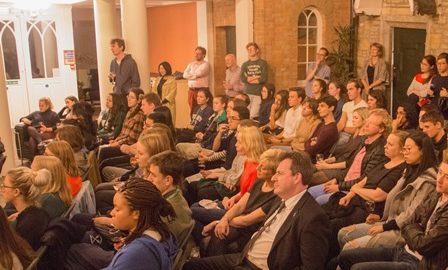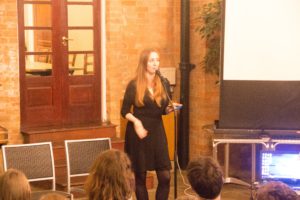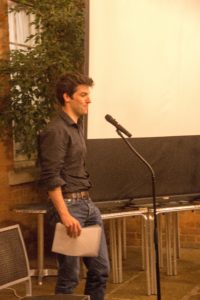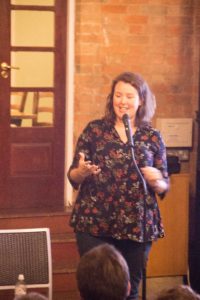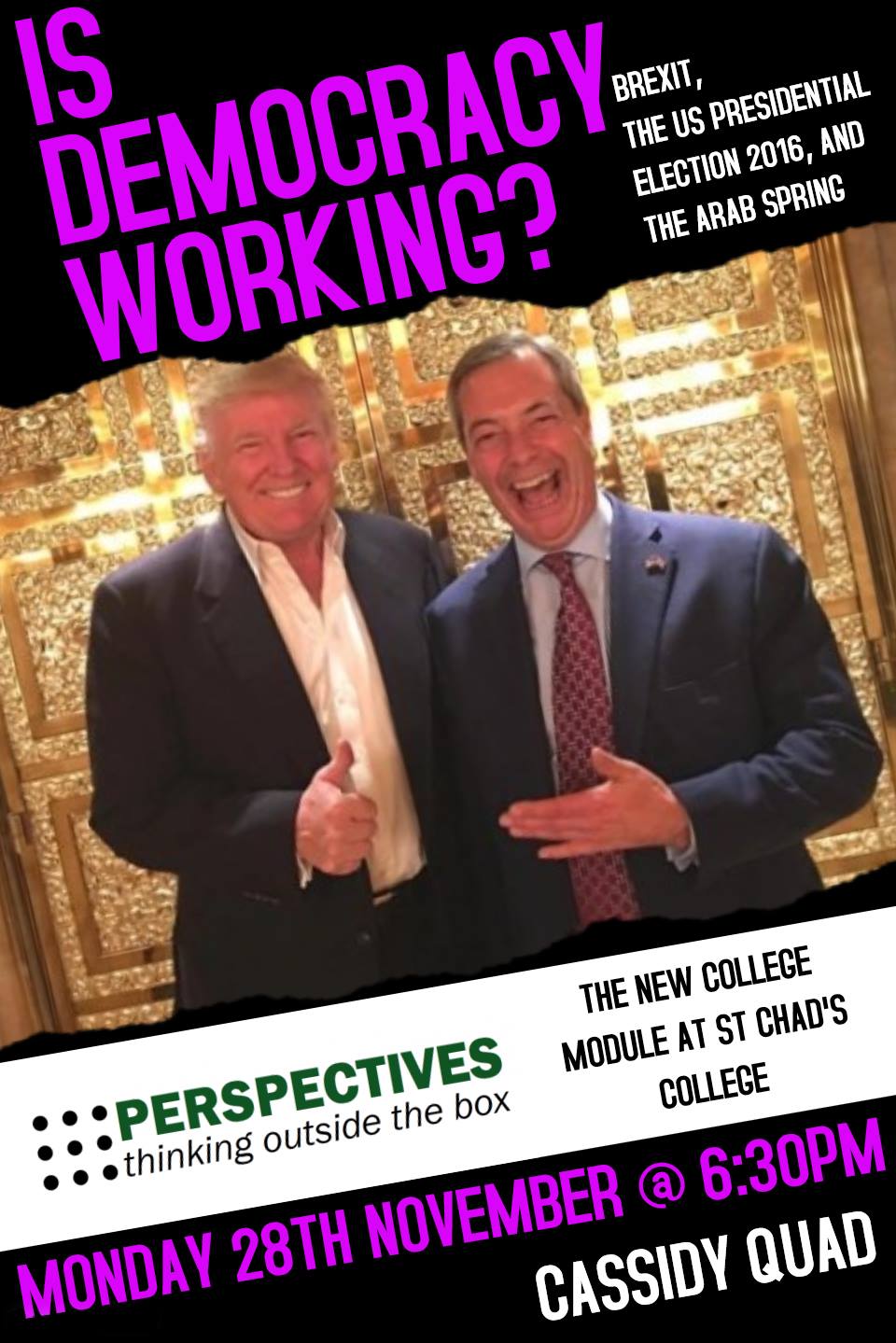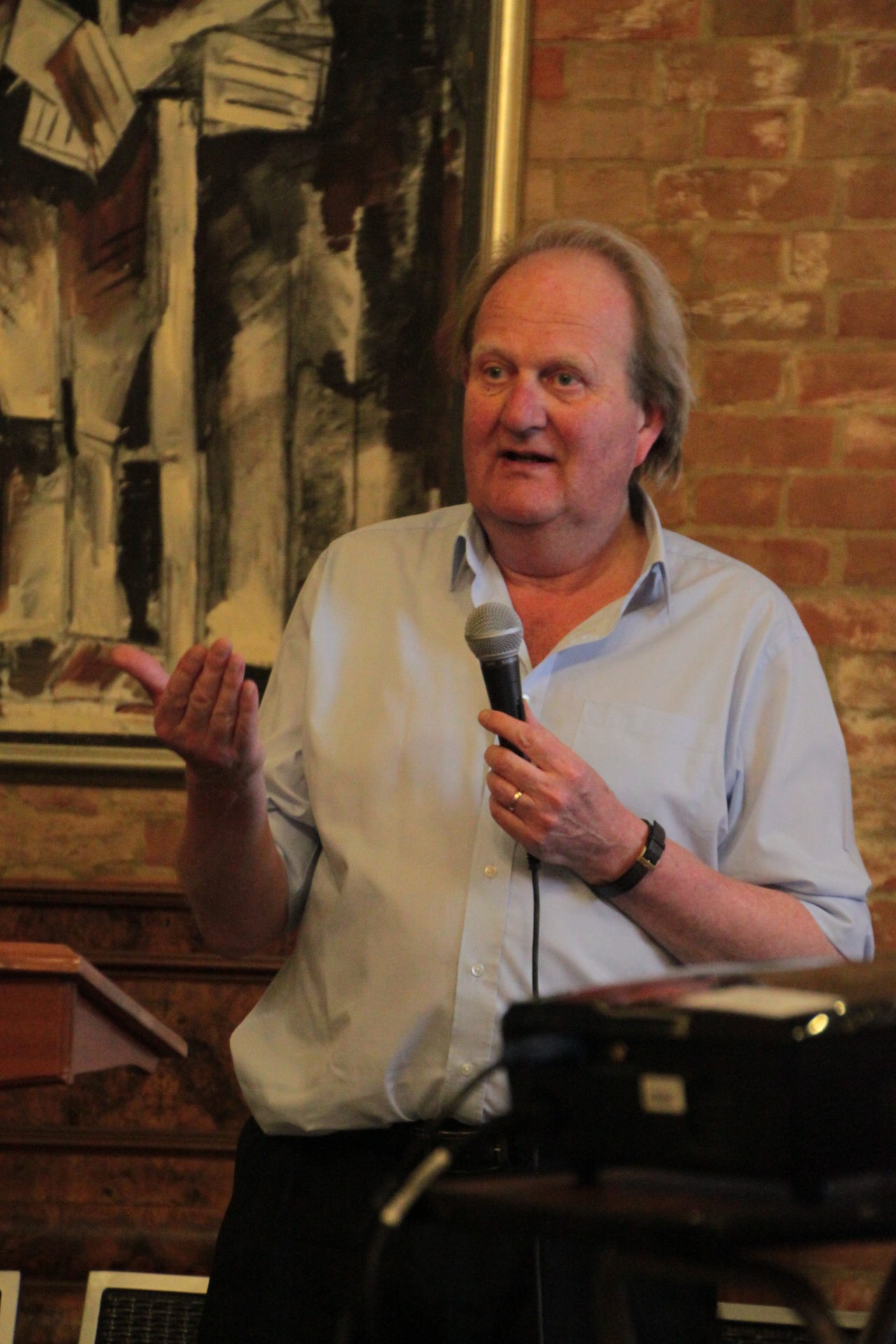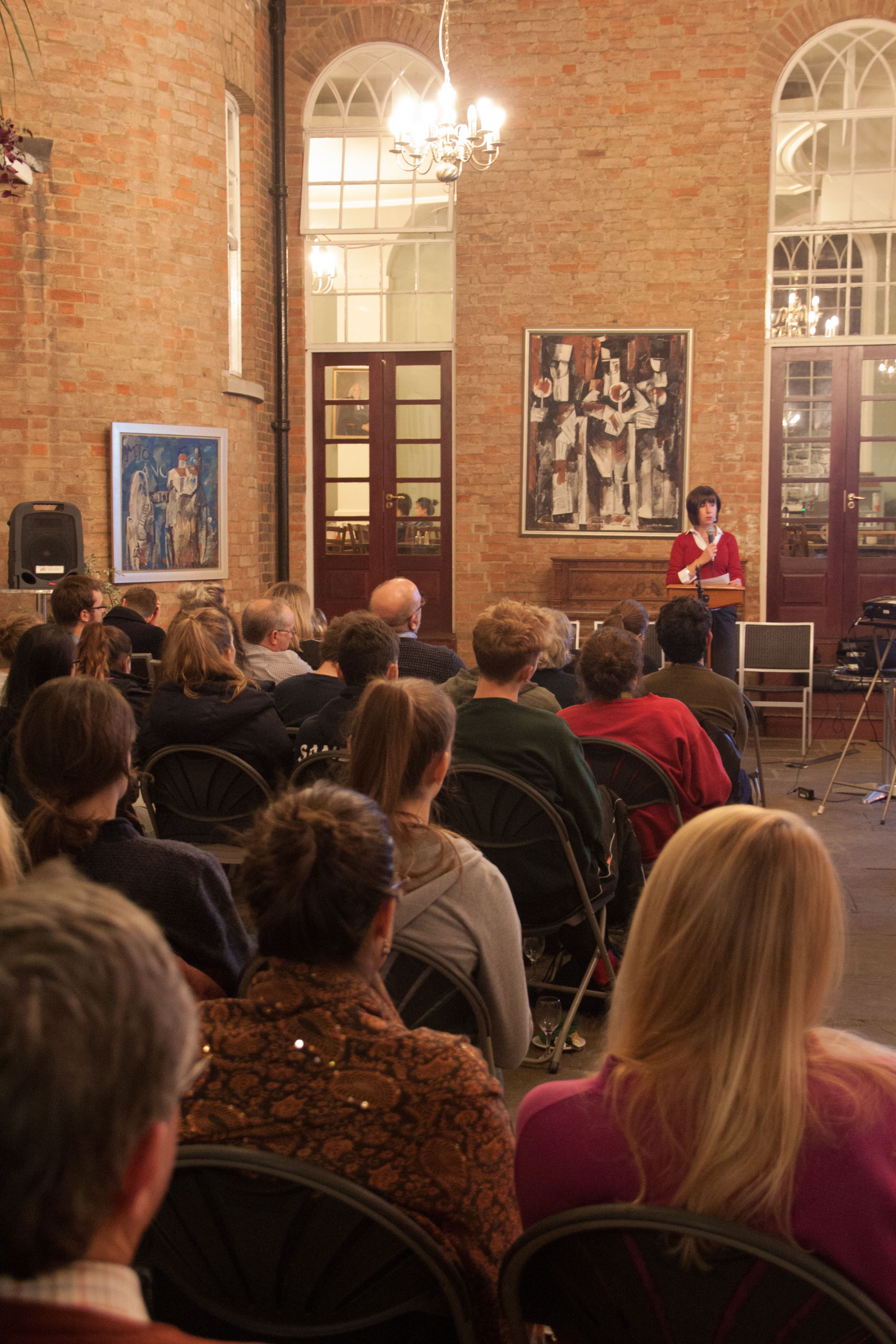Licensing of David Rushton as our New Chad’s Chaplain
11th October, 2017
Sermon by Margaret Masson, Principal
Readings: Job 28: 12 – 28; Ephesians 3: 14 – 21
David, you are well and truly installed – Chad’s/C of E doesn’t do these things by halves!
Thank you, Bishop David for being with us to do the licensing.
David, hope you also feel well and truly welcome – great joy to celebrate with you as you begin your ministry amongst us.
Already, you feel very much a part of our community – we’re very happy to have you. A warm welcome also to your parents, friends, members of our college community – everyone here this evening
I’d also like to thank Ashley – not only for putting this service together, but for all you have given us during your eight years )plus one acting) as chaplain. Thank you!
Already, this is quite a long service; so I plan to speak fairly briefly; but I do want to take this chance to reflect on what we’re doing here tonight.
Why are we installing a chaplain? In these times when religion is often such a contested, problematic space, why does it matter to us to have a chaplain? What are we hoping for from David’s ministry amongst us?
Whole books have been devoted to role of chaplaincy, but tonight, I want to suggest three things that I think, hope, pray that this chaplain will bring to this community.
- Job 28 – a reading suggested by David – is all about Wisdom. It’s a wonderful passage.
It aims to awaken our imaginations (it’s pure poetry) to the beauty and importance of wisdom:
- “it cannot be valued in the gold of Ophir, in precious onyx or sapphire, its price is above pearls, it cannot be compared with the topaz of Ethiopia…”
It’s very very precious
Wisdom is also portrayed here as very elusive…where do you find it? Often hidden, concealed, not obvious: wisdom is not just common sense
In these verses, wisdom demands a certain humility as we seek it out: an awareness of our own human limitedness, our fundamental dependence on God – who is characterised here as the source of all wisdom.
I hope here at St Chad’s, Wisdom – however we conceive it – is part of what all of us are here to learn.
It’s part of what a chaplain is here to nurture, even provoke us towards.
So, David, we look to you to help us in our search for Wisdom (no pressure), and to do this, you will need to listen to us, to be catalyst for reflection, to bring us perspective when we most need it, to be a person of integrity, someone who will do your best to speak truth to us – even when we may not want to hear it! As individuals, as a college, we hope that amidst all the busyness, the sometimes conflicting, confusing experiences of our lives, that you will challenge us to search for, even help us to find, wisdom.
- Our second reading this evening is about an even more fundamental human longing – Love – and again, it’s a wonderful, poetic, lyrical text which is tumbling over itself as it strains to express the sheer riches and abundance of the Love that is ours in God. It talks about being rooted and grounded in love, having the power to comprehend the breadth, the length, the height, the depth of God’s love, of knowing the love of Christ that surpasses knowledge, of being filled with all the fullness of God… In these short verses, there are so many images of abundance, overflowing; these are words alive with the sense of the power and possibility of that love.
This is not the kind of cotton wool candyfloss love that bears fruit in entitlement or narcissism or the brittle fragility of self-delusion that shrinks from difficulty or challenge. It’s the kind of love that sees us – and helps us to see ourselves – as we are, warts and all, and loves us – unconditionally, overwhelmingly, anyway.
One of the things that I think characterises the Chad’s community – when it is being its best self – is the way in which it gives each of us a sense of being valued, being loved in this kind of honest, unflinching, uncompromising, wonderful and usually costly way.
Non vestra sed vos – not for what you have, not for how intelligent or beautiful or rich you happen to be – but for you yourself, just as you are.
David, part of your role as chaplain is to nurture this love – and I know you will – as you are present with us – in the dining room, the kitchens, our common rooms, the bar, the sports field, here in chapel…reminding us not just in your words, but in your presence with us, of this sometimes troubling but ultimately redeeming truth: we are loved, infinitely precious. And so is everyone else in this college, this University, this City – this planet.
- Which leads me on to the third thing I’d like to say this evening.
As well as searching for Wisdom, as well as grasping that we are loved, David, we’d also like you to help us be a generous community of inclusion, place of radical hospitality.
A chaplain is for everyone – and I know David believes this very deeply –
not just for those who come to chapel – not just for students of this college, but
for each and every member – Porter or Principal, for the newest fresher and the oldest alumnus, for each staff member, tutor, SCR member, for each and every student whatever their faith or belief.
This is not just my vision; it’s not just the vision of this chaplain or this college, but it’s deeply in the DNA of the Anglican faith which inspired the founding of St Chad’s College. It’s what inspires our commitment to social justice, the way we value community.
And a key part of this vision is that it does not stop with us:
David is Chaplain and Outreach officer – we were reminded again at the Engaged and Inspired lecture in the Cathedral on Thursday that this College was founded so that people who could not afford it on their own would not miss out on being able to fulfil their vocation. In those days, it was vocation to the priesthood; today, it is about the vocation to study the whole range of academic subjects.
So our challenge is: how do we as Chad’s today live out this commitment to inclusion, to justice? This is for each of us to work out personally, as well as for us as a College to respond to in each new generation.
David, we want you to encourage us in this, whether it’s in how we treat each other day by day, or through our volunteering, our admissions work, our Widening participation with schools, our Research, our choir outreach, our prayers, or in countless other ways.
David, we’re so happy to have you with us as our chaplain. As you minister amongst us in the years that we hope are to come, help us to share whatever wisdom, whatever love, whatever sense of possibility and hospitality we learn here – not just amongst ourselves, but also far beyond this place and long after this time.
In the name of the father and of the son and of the holy spirit Amen.
 On 23rd November 2020, Chadsians and friends gathered on Zoom for the second PERSPECTIVES event of the academic year, focussing on the questions raised by Britain’s imminent departure from the EU – with or without a deal.
On 23rd November 2020, Chadsians and friends gathered on Zoom for the second PERSPECTIVES event of the academic year, focussing on the questions raised by Britain’s imminent departure from the EU – with or without a deal.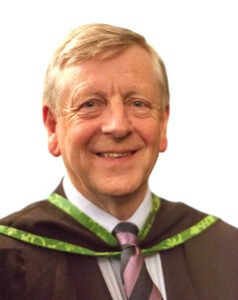

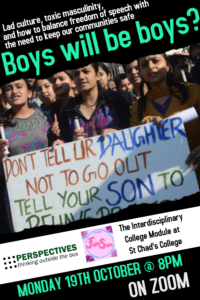 Boys will be boys? Lad culture, toxic masculinity, and how to balance freedom of speech with the need to keep our communities safe
Boys will be boys? Lad culture, toxic masculinity, and how to balance freedom of speech with the need to keep our communities safe We were joined by our expert speakers, Eliza Bechtold (Deputy Director of the Durham Law School Human Rights Centre) and Dr Stephen Burrell (Assistant Professor, Durham University School of Applied Social Sciences), as well as hearing an anonymous statement provided by Durham University Survivors, an online platform for survivors of sexual violence to share their stories anonymously. After hearing from our speakers, we adjourned into breakout rooms for smaller group discussion before returning to the main Zoom room for further conversation. Discussion included consideration of the potential for escalation from ‘banter’ and casual sexism to serious sexual violence, and the ways in which we can best challenge the cultural normalisation of misogyny in our communities. We were particularly interested to hear Eliza’s explanation of the distinction between what is merely offensive and what constitutes hate speech under UK law, and to hear about Stephen’s research on how the Covid-19 pandemic has affected conceptions of masculinity.
We were joined by our expert speakers, Eliza Bechtold (Deputy Director of the Durham Law School Human Rights Centre) and Dr Stephen Burrell (Assistant Professor, Durham University School of Applied Social Sciences), as well as hearing an anonymous statement provided by Durham University Survivors, an online platform for survivors of sexual violence to share their stories anonymously. After hearing from our speakers, we adjourned into breakout rooms for smaller group discussion before returning to the main Zoom room for further conversation. Discussion included consideration of the potential for escalation from ‘banter’ and casual sexism to serious sexual violence, and the ways in which we can best challenge the cultural normalisation of misogyny in our communities. We were particularly interested to hear Eliza’s explanation of the distinction between what is merely offensive and what constitutes hate speech under UK law, and to hear about Stephen’s research on how the Covid-19 pandemic has affected conceptions of masculinity. We were delighted with the good turn out, enthusiastic engagement with the speaker, and with how well the technology worked! We’re determined that the current Covid restrictions shouldn’t prevent our students from benefitting from our usual varied programme of scholarly and co-curricular activities, and we are already planning our next PERSPECTIVE session for November.
We were delighted with the good turn out, enthusiastic engagement with the speaker, and with how well the technology worked! We’re determined that the current Covid restrictions shouldn’t prevent our students from benefitting from our usual varied programme of scholarly and co-curricular activities, and we are already planning our next PERSPECTIVE session for November.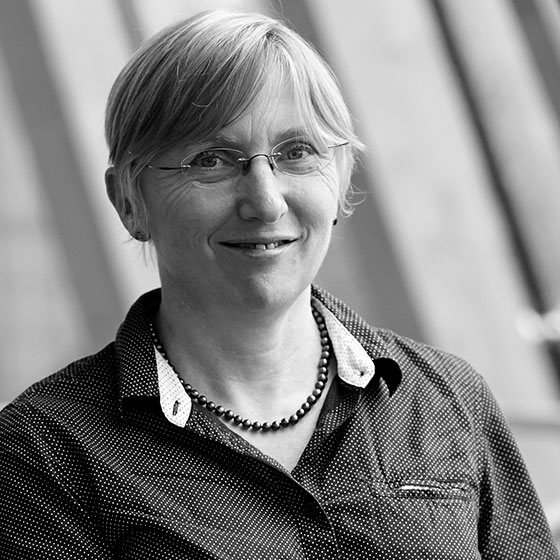 Professor Adams is an expert in integrated reporting, social and environmental accounting, sustainability reporting and developing strategy to address sustainable development. She is founding editor of the Sustainability Accounting, Management and Policy Journal and writes on her website at www.drcaroladams.net.
Professor Adams is an expert in integrated reporting, social and environmental accounting, sustainability reporting and developing strategy to address sustainable development. She is founding editor of the Sustainability Accounting, Management and Policy Journal and writes on her website at www.drcaroladams.net.